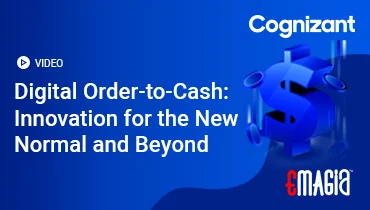In our modern, digital world, the phrase “card declined” can send a small jolt of anxiety through anyone. It’s a frustrating experience, whether you’re at the grocery store checkout or trying to pay a bill online. But not all card declines are created equal. One of the most common, and often misunderstood, is the declined NSF message. It’s a simple, three-letter acronym that carries significant weight, impacting consumers and businesses alike. This comprehensive guide will peel back the layers of this financial event, helping you to understand its true meaning, why it happens, and most importantly, how to navigate and prevent it.
What is the True Meaning of a Declined NSF?
Before we can delve into the details, we must first understand the fundamental concept. When a transaction is marked as declined: nsf, it means that the bank account linked to the payment method did not have enough money to cover the purchase. The acronym NSF stands for Non-Sufficient Funds. It’s a clear and direct communication from the bank: the transaction cannot proceed because the necessary cash isn’t there. This is different from other decline reasons, such as a frozen account or an expired card. An insufficient funds on credit card is a related concept but with different consequences.
Breaking Down the Acronym: Non Sufficient Funds Meaning
The term “non-sufficient funds” is as literal as it gets. “Non-sufficient” means not enough, and “funds” refers to the money in an account. When you see a message like denied due to nsf for debit consumer card, it’s the bank’s way of saying your available balance is too low. This simple fact has complex implications for both personal finance and business operations. It’s the core of what what do nsf mean when it comes to banking and payments.
The Many Reasons for a Card Declined Debit and Denied Due to NSF
A card decline isn’t always a sign of poor financial management. It can be caused by a number of factors, often surprisingly simple ones. Understanding the root cause is the first step toward preventing it from happening again.
Common Causes for Consumers
- Misjudging the Balance: Perhaps the most common reason is a simple miscalculation. You might forget about a small automated bill or a recent pending transaction that hasn’t cleared yet. This leads to a decline nsf message.
- Timing is Everything: An unexpected delay in a paycheck deposit or an early withdrawal by a merchant can throw off your balance, causing a denied due to insufficient funds. This is particularly relevant for nsf for debit consumer transactions.
- A Forgotten Bill: We all have recurring subscriptions or bills. If one of these hits your account when funds are unexpectedly low, you may see a payment failed due to insufficient funds notification.
- The Overdraft Dilemma: Many banks offer overdraft protection, but it’s not a universal safety net. If you don’t have it, or you’ve exceeded the limit, the bank will reject the transaction, resulting in a debit declined status and associated fees.
Why Businesses Experience Declined NSF
- Subscription and Recurring Payment Failures: For subscription-based businesses, a card decline due to insufficient funds can be a regular problem. It impacts revenue and requires a strategic approach to recover.
- Unintentional Overcharging: Sometimes, a merchant might try to process a payment for a different amount or at an unexpected time, leading to a decline nsf meaning frustration for the customer.
- The High-Stakes of Large Transactions: When a customer makes a large purchase, there’s a higher chance of a denied due to issuer decline because the transaction might be larger than their available funds or daily limit.
The Consequences: From Fees to Financial Stress
The fallout from a declined nsf is more than just an inconvenience. It can have a significant financial and reputational impact on both parties.
The Impact on Consumers
- Bank Fees: This is the most immediate consequence. Banks charge an NSF banking fee for each rejected transaction. These fees can add up quickly, especially with multiple attempts.
- Credit Score Implications: While a single NSF event doesn’t directly impact your credit score, it can trigger a chain reaction. For example, if a payment for a loan or credit card is `declined for nsf`, it could result in a late payment report to credit bureaus, hurting your score.
- Potential Legal Ramifications: In rare cases, especially with checks, repeated `denied due to nsf` events could lead to legal action, a more serious consequence than just fees.
The Impact on Merchants and Businesses
- Lost Revenue: The most obvious impact is the immediate loss of a sale. Each `payment failed due to insufficient funds` is a transaction that needs to be recovered, if possible.
- Operational Overheads: Handling `cards declined` requires administrative time and resources. Chasing down a customer for a failed payment is an added cost that directly impacts the bottom line.
- Customer Churn: A poor payment experience, especially a confusing `card declined` message, can damage trust and lead to a customer leaving for a competitor. This is why `understanding declines and failed payments` is critical for business retention.
A Breakdown of Decline Codes and Meanings
Financial transactions are complex, and banks use a variety of codes to communicate a decline reason. It’s important to distinguish between an nsf and other causes.
The Unique Nature of Declined: NSF
An nsf is a specific decline code. It tells you exactly what the problem is: a lack of money. Other decline codes, such as those related to fraud, an expired card, or a general `denied due to issuer decline`, have completely different meanings and require different solutions. For instance, a `nsf credit card` decline is different from a `nsf for debit consumer` one. The former means you’ve exceeded your credit limit, while the latter means you’ve gone beyond your available cash.
Demystifying Other Decline Codes
- Do Not Honor: This is a generic decline message from the bank. It means the bank is not authorizing the transaction for an unstated reason. It could be due to suspicious activity, and often requires the cardholder to call their bank.
- Expired Card: The card has simply passed its expiration date. A quick and easy fix.
- Fraudulent Transaction: The bank has flagged the transaction as potentially fraudulent. This is a security measure to protect the customer.
Proactive Measures: Avoiding the Declines
The best way to deal with a `decline nsf` event is to prevent it from happening in the first place. This requires a combination of personal vigilance and smart business practices.
For the Individual: Taking Control of Your Funds
- Master Your Budget: Create a detailed budget and track every expense. Use mobile banking apps to monitor your account balance in real time.
- Set Up Low-Balance Alerts: Most banks offer text or email notifications when your account balance drops below a certain threshold. This is one of the most effective ways to avoid a `denied due to nsf`.
- Overdraft Protection: Consider enrolling in an overdraft protection program. It may have fees, but it can be cheaper than multiple NSF fees and prevent a `card decline` at a critical moment.
For the Merchant: Improving Payment Success Rates
- Implementing Dunning Management: For recurring billing, an automated system that intelligently re-attempts failed payments can significantly increase revenue recovery.
- Communicate with Customers: When a payment fails due to insufficient funds, it’s an opportunity to engage the customer. A gentle, automated message can prompt them to update their payment method or add funds to their account.
- Using Advanced Payment Gateways: Modern payment processors can provide detailed data on decline codes. This information is crucial for understanding why `payment failed due to insufficient funds` and creating a strategy to fix it.
A Word on NSF and Its Other Meanings
While this article focuses on non sufficient funds in a banking context, it’s worth noting that the acronym NSF has another prominent meaning: the National Science Foundation. This is a common point of confusion in online searches. However, the context of a payment or transaction is the key to knowing when it means not sufficient funds meaning rather than a federal agency.
The Emagia Advantage: Solving Failed Payments with Financial Automation
For businesses, dealing with failed payments and the decline nsf meaning can be a massive drain on resources. This is where modern financial automation solutions come into play. Emagia’s platform transforms the management of accounts receivable by automating the entire process, from payment collection to dispute resolution. By leveraging advanced analytics and AI, Emagia helps businesses predict and prevent payment failures, including those due to nsf non sufficient funds. The platform enables intelligent dunning strategies, personalized communication with customers, and a holistic view of payment patterns, all of which are essential for increasing revenue recovery and improving the customer experience. By providing a clear and automated approach to handling understanding declines and failed payments, Emagia allows businesses to focus on growth rather than chasing down overdue invoices.
FAQs about Declined NSF and Failed Payments
What does non sufficient funds mean?
It means there is not enough money in an account to cover a transaction, leading to a rejected payment.
Can a denied due to nsf affect my credit score?
Directly, no. However, if the payment was for a credit card bill or loan, the missed payment could be reported to credit bureaus and negatively impact your score.
What’s the difference between a declined NSF and a credit limit exceeded decline?
A declined for nsf on a debit card means you don’t have enough cash. A credit limit exceeded decline means you’ve tried to charge more than your allowed credit on a credit card.
What should a business do when a payment failed due to insufficient funds?
Businesses should use an automated dunning system to re-attempt the payment and send a polite, clear notification to the customer, encouraging them to resolve the issue.
What does nsf on a credit card mean?
When it comes to a credit card, the term nsf credit card meaning usually refers to an overdraft on the credit card account itself, or a decline for having gone beyond the available credit limit.
What is n/s/f meaning?
N/S/F is simply an abbreviation for Non-Sufficient Funds, another way of writing NSF.
What is the difference between NSF and overdraft?
An NSF is a declined transaction due to lack of funds, often with a fee. An overdraft is when a bank covers the transaction even though you don’t have enough funds, also with a fee.



